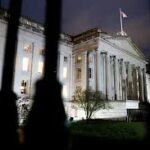Harvard University and the University of Toronto have unveiled a joint contingency plan aimed at supporting international graduate students who may face difficulties re-entering the United States due to visa restrictions.
Under the arrangement, eligible students from Harvard’s John F. Kennedy School of Government could continue their academic programmes in Canada through a visiting student initiative at the University of Toronto’s Munk School of Global Affairs and Public Policy. The programme would feature a collaborative curriculum delivered by faculty from both institutions, according to a joint statement from the schools’ deans.
The initiative follows recent uncertainty surrounding international student visas, sparked by a move from the U.S. Department of Homeland Security to revoke Harvard’s ability to enrol foreign students—a decision later overturned by a federal judge.
“To address potential disruptions, HKS will be able to continue to provide a world-class public policy education to all of our students, even if they cannot make it to our campus this year,” said Harvard Kennedy School Dean Jeremy Weinstein.
The contingency plan will only be implemented if there is sufficient demand and applies to international students who have already completed at least one year of study on Harvard’s U.S. campus.
The announcement also comes amid broader tensions between Harvard and the administration of President Donald Trump, which has accused the university of mishandling campus unrest, antisemitism, and international collaborations, particularly with China. The administration has threatened to withhold federal research funding over these concerns.
Harvard’s International Office reports that 52% of Kennedy School students over the past five years have been international. The school currently hosts 739 students from 92 countries enrolled in public policy and leadership programmes.









